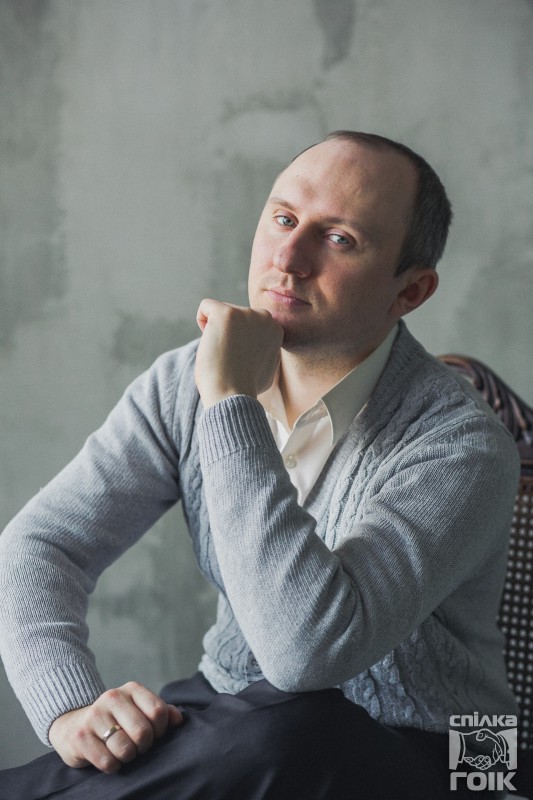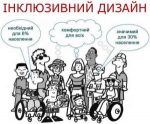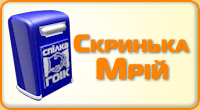Svetlana PATRA,
journalist of the Image center of the University “Ukraine”
Alexander Vorona is a poet, a public figure and, most importantly, a Person. He chose the aim of his life at school, Alexander was working hard to achieve it. He wanted to help people. Choosing between the paths of a lawyer and a social worker, he walked around all the institutes and universities he knew. And the road led him to the Open international University of human development “Ukraine”. Having just entered the threshold of the University, Alexander realized that there he will be able to achieve his goal – to learn how to assist people in need professionally. So the profession and social work are our topic of the conversation with Alexander Vorona, the President of Kiev Municipal League of Public Organizations of People with Disabilities.
Alexander is a native of Kiev. He entered the University “Ukraine” in 2000 and quite soon began to cooperate with Kiev
Municipal League of Public Organizations of People with Disabilities as a volunteer, then became an assistant of the President of the organization. At that time it was Eugene Monukalo. The founder and the first President of the League was Leah Remennik. And since 2006, Alexander Vorona has been the President of Kiev Municipal League of Public Organizations of People with Disabilities.
President of the organization. At that time it was Eugene Monukalo. The founder and the first President of the League was Leah Remennik. And since 2006, Alexander Vorona has been the President of Kiev Municipal League of Public Organizations of People with Disabilities.
Alexander, please, tell us about your activities in detail.
Kiev Municipal League of Public Organizations of People with Disabilities was founded in 1998. It consists of 11
organizations that work with people with disorders of the musculoskeletal system. The main goal of the League is the active involvement of people with disabilities in public and social life of the city, and coordination of effective interaction of organizations for people with disabilities to exercise and protect their rights and freedoms.
The League aims at creating an integrated environment for people with special needs, as well as lobbying their interests in local government.
Kiev Municipal League of Public Organizations of People with Disabilities is implementing several projects aimed at improving the situation of people with disabilities and the elderly people. Among these projects are: “Ensuring the right to an accessible environment for people with special needs”, “Leisure for former prisoners of concentration camps, prisoners of war and victims of the nazi regime”, “Providing access of people with special needs through the use of computer and information technologies”, “World without limits”, ” School of independent life “. Effective results were demonstrated by the already implemented projects: “Ensuring freetime activities for the elderly”, “Right for independent living for people with disabilities. Positive experience”, “Barrier-free environment”. More about the projects, as well as news from the life of the Union, you can read on our site: http://spilka.kiev.ua/.
You are not the only a public figure, but also a poet. Could you please tell what is poetry in your life? How did you come to poetry?
Poetry is a hobby for me. This is an opportunity to tell about how I feel and what sort of public opinions I see. This is a relationship with the Space (laughs). I wrote in one of my poems once: “And writes a genius, he doesn’t know where from// As if he is connected with the Space…” (original of Ukrainian: «І пише геній, сам не знає звідки // Неначе з космосом налагодив зв’язки…») Poetry helps you to look at certain events or phenomena differently, to open some secret corners of your soul, to share emotions and thoughts with the readers.
I started writing in 11th form. Read the poem at one of the festivals of arts, won it… I realized people have liked my work, and this was the impetus to stop hiding the verses in the mailbox, and to share with others instead. In 2005, my book of poetry “Two sides” was published at the University “Ukraine”. The name is caused by the poems in Ukrainian and Russian languages, views on life from different sides.
How did you learn about the University “Ukraine”?
After 11th form, I wanted to work in the social sphere, so I went to different universities. Visiting the University “Ukraine”, I communicated with members of the admissions committee and professors and realized that was the place where I could get a professional education. Therefore I purposefully went to the faculty of social technologies.
What inspired you to come there?
The desire to study social work. After talking to my future professors, students, I realized that I would be surrounded by the like-minded people who are not indifferent to this business.
I worked with the student government right at the period of its birth. Was a part of the team that developed this activities, headed by Victoria Dikaya. I was lucky enough to be the founder of the student scientific society and the author of the first of its Statute. Also, I was one of the founders of the Ukrainian public organization of disabled students “Gaudeamus” (with Ekaterina Kolchenko and Dmitry Puzikov).
What are your impressions of the University “Ukraine”, which of the professor do you remember most?
Only positive impressions. I always knew why I entered University “Ukraine”. Knew what I needed, so much time has been devoted to self-education. In the University “Ukraine”, I was learning comfortably. We learned and discovered something new, we found interesting things. If we wanted something to develop, then talked about it with professors, discussed with Peter Mikhailovich Talanchuyk. through the work of student government. I knew I wanted to do social work from the very beginning, so I was coming to this, getting the knowledge, the experience, which helped me in further work, in particular – in Kiev Municipal League of Public Organizations of People with Disabilities.
Most often I remember Lydia Tyuptya, she had a very important influence on my growth as a professional, guided and stimulated by the acquisition of new knowledge and self-development. Alla Bodnar, Irina Ivanova, Lydia Zaviryukha are also great professors. Although now, analyzing the acquired knowledge, I would like to mention an extremely high level of professionalism of all professors and the value of the obtained knowledge and skills.
Your favorite subject at the University?
Can’t select a single subject, they are all interesting, each in its own way. Probably, the introduction to the profession, because the first year of study, the first knowledge, first steps into the profession, new experiences (laughs).
What did the University “Ukraine ” give to you?
Basic knowledge and the basis for the work. Professional activities are based on education. In the University, I met a large number of like-minded people with whom I shared attitudes and beliefs.
Please tell us what events, festivals, particularly in the University “Ukraine”, you participated in? What, in your opinion, give such activities for a creative person?
I was among the first participants of the “Shine of hopes” festival, was a volunteer, participated in its establishment, contributed to its development. Also participated in other festivals, in particular “Believe in yourself”, which is the Kyiv city art festival for youth with disabilities. Among the interesting events that I remember is the birthday celebration of the University “Ukraine” in the Palace of arts “Ukraine”.
Festivals and competitions provide an opportunity for self-realization. What do we write for? Sometimes for ourselves, sometimes we want to develop as a creative person. The same festival is one of the steps towards the realization of yourself in creative direction. And such events give the opportunity to show your creativity, meet new people, discover new talents.
Whose work inspires you? Who is your favorite artist?
T. Shevchenko, I. Franko, L. Kostenko, S. Esenin, O. Pushkin, W. Shakespeare.
Among Lina Kostenko’s verses I really like a poem called “Wings”, it is particularly rememberable performed a wonderful actor, Bogdan Stupka.
Of our modern writers, I like Kapranovy brothers, M. Matios, I. Rozdobudko, Y. Andrukhovych.
Among musicians I prefer bands called “Ocean Elzy”, “Liapis Trubetskoy”, “Time Machine”, “DDT”.
Ukraine is now going through quite difficult testiments. What do you think that we all need to do in order to go through these difficult times with dignity?
We need to be strong. We must be united to fight for our future. We must believe in ourselves and know who we are. Ukraine is an independent state which has ancient mighty roots, starting from the KievRus, continuing the Cossacks and the Heavenly Hundred – people who have given their lives for our country. Now we need to take this seriously. Because the future depends on every citizen of Ukraine – both his personal and the whole state’s. We must do our best. Each should be in the right place. Everyone should do their job well, to fully develop themselves, to do everything they can to have a positive change. It is important to know what you’re doing, and do it efficiently and correctly.
In your opinion, what is the place of the person with special needs in the modern world and in Ukraine in particular? What should be done to improve the quality of life of people with disabilities? What should make the state and public organizations, and what people with special needs?
I think that the location of the person with disabilities, like any other, depends on itself. I believe that every person, including those with disabilities, is not different from others in our world. One’s development as a person depends on oneself, so people with disabilities can and have to work, to take an active part in social issues, in changing public opinion, in changing the situation in the state. Such a person must not sit still and say that everything is bad.
There will be no result without action. If God gave you such life, you have to accept it the way it is. Society is changing, and now it is ready to accept a person with disabilities. Sometimes people are not ready – afraid of something…
You need to go for your dreams. To set a goal. No matter if you are a man in a wheelchair, on crutches or never leave the house at all through certain features. If you cannot get out of the house through the barrier environment, you need to try to change this situation by yourself and to create the necessary conditions. The ramp will not appear suddenly. People must work on themselves. Yes, it’s hard, but then they will reap the fruits of their work. Sometimes it is enough to make one phone call. Or to answer the call.
The state must ensure that each man could be realized as a person. This applies to both people with disabilities and without. You need to look at everyone equally. The principle of inclusion and equal opportunities should be provided in all spheres of life. In the Soviet Union, there “were no” people with disabilities, and now we have an independent European state, conscious people who want to live, have equal rights and opportunities, not to sit at home on pensions-“handouts”. People with disabilities want to have a normal life: to go on dates, restaurants, theaters, etc.
Of course, state policy in the sphere of protection of rights of people with disabilities also has to change. The official must think comprehensively. For example, to understand that the ramp in a specific location is required, despite the fact that there are people with disabilities or not, will be or will not. If people with disabilities did not come to a cafe or theater today, it doesn’t mean that they won’t be there tomorrow. Perhaps such people don’t come there due to the lack of a ramp. The building should be equipped with all necessary architectural conditions. It is an axiom. Therefore, when the authorities first and foremost builders are aware of this, the wheelchair accessibility problem will be partially solved. And then there will only remain the work with the public, building a culture of life in an inclusive society.
Social organizations are the bridge between people with disabilities and representatives of authorities. They are partners for the state and society, experts on many issues.
Also NGOs are connected with society and socially responsible companies, business associations efforts to improve the quality of life of their beneficiaries, people with disabilities, for example.
What do you dream of?
Of success, so that all undertakings were embodied and made a lot of changes in society. My dream is to raise at least three children (laughs). To bring them up to be good people, to give them a good education. First of all, to raise good people.
What would you wish to the readers?
Keep your powder dry (laughs), but seriously: to the creative personalities – the realization of their talents, to those who work – the pleasure of working. I wish them all to follow the dream, no matter what, not to betray this dream no matter how difficult the way would be.








